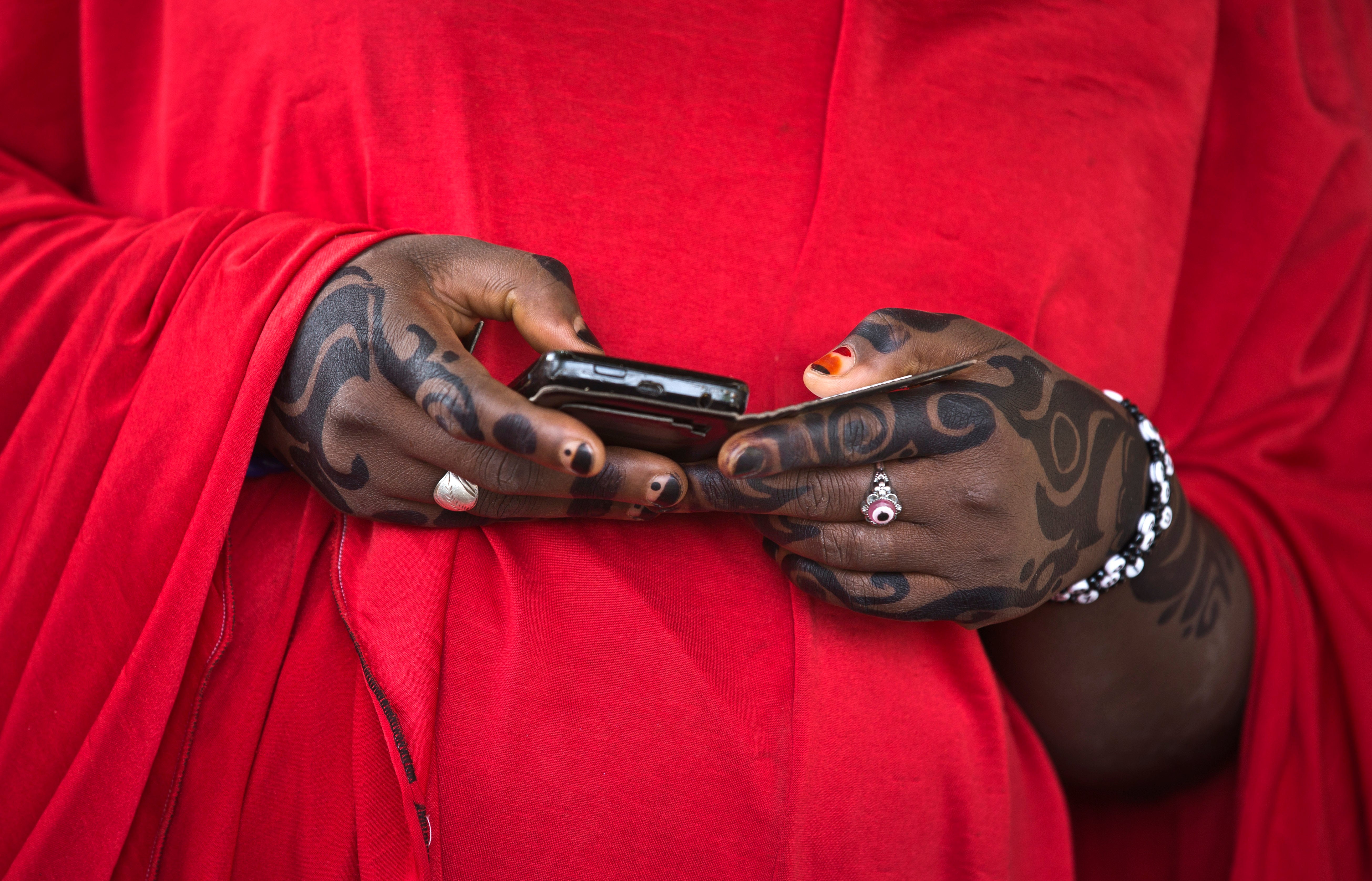In Nigeria’s troubled northwest, phone blockades hurt locals
In response to growing violence across Nigeria’s northwest and central states, governors have blocked telecommunications in many areas across five states to enable the military to carry out special operations targeted at the armed groups attacking local communities

Your support helps us to tell the story
From reproductive rights to climate change to Big Tech, The Independent is on the ground when the story is developing. Whether it's investigating the financials of Elon Musk's pro-Trump PAC or producing our latest documentary, 'The A Word', which shines a light on the American women fighting for reproductive rights, we know how important it is to parse out the facts from the messaging.
At such a critical moment in US history, we need reporters on the ground. Your donation allows us to keep sending journalists to speak to both sides of the story.
The Independent is trusted by Americans across the entire political spectrum. And unlike many other quality news outlets, we choose not to lock Americans out of our reporting and analysis with paywalls. We believe quality journalism should be available to everyone, paid for by those who can afford it.
Your support makes all the difference.Mobile phones have been lifelines for residents of northwestern Nigeria who have relied on warning calls to escape escalating bandit attacks.
But recent blockades on mobile telecommunications by authorities have left many rural people cut off and more vulnerable, say residents.
The bandits — armed groups who plunder villages and often kidnap, rape and kill — are increasing their attacks in Nigeria's northwestern and central states. At least 2,500 people were killed in the first half of 2021 in the northwest and central regions, according to the US Council on Foreign Relations, which collates daily media reports on such attacks.
The widespread banditry in the northwest is in addition to the 10-year Islamic extremist insurgency in northeast Nigeria.
Responding to the surging violence, the governors of five northwestern and central states have blocked mobile networks to prevent the outlaws from communicating with collaborators.
While the communications blackout has had some positive effects, it also hampers local communities, according to multiple interviews with residents, officials and security experts.
The telecommunications blockade was first imposed last month in Zamfara state for an initial period of two weeks. Mobile phone service has been restored to Zamfara's state capital, but its rural areas remain cut off. Katsina, Sokoto, Niger and Kaduna states have also banned mobile networks in recent weeks in areas where killings and abductions continue.
Authorities credit the blackouts for helping them to corner the bandits and free hostages including more than 180 captives freed in Zamfara earlier this month.
However, the killings of civilians have “worsened” in some areas since the start of the phone blackouts, local officials told The Associated Press. More than 100 people have been killed across northwest and central Nigeria in the last two weeks, according to the Council on Foreign Relations. Many other deaths have not been reported, say some officials.
“We are trapped,” Amina Al-Mustapha, a state lawmaker from the violent hotspot of Sabon Birni in Sokoto state, told AP.
“Every day, they attack our people and we have no way to talk to our people," Al-Mustapha said. "No single village has not been attacked ... We are suffering now.”
At least 32 people were killed in the Munya area of Niger state earlier this month when a band of gunmen stormed villages and ransacked them for hours while no help arrived.
The Munya area villagers could not send out alerts about the attacks because of the telecommunications blockade, Garba Mohammed, the area's chairman, said. Police and other security agencies only learned of the attacks hours after the killings had occurred, he said.
Previously communities would get phone warnings and people were able to “run for their lives,” he said.
In addition to blocking telecommunications access, the northern states have also shut down markets, imposed night curfews, limited vehicular traffic, closed major roads and banned motorcycles as they battle to restore order.
Nnamdi Obasi, the International Crisis Group’s Nigeria Senior Adviser, told AP that because the security situation in the northwest has been “deteriorating dangerously” and is “suffocating” on local economic activity, Nigeria's government and the military are pressed to “do something different.”
“It was clear that if the tide wasn’t reversed, then we could be heading from what we are calling banditry to a full-scale insurgency,” he said. He added that the phone blackout and other security measures are “a two-edged sword" that is restricting the outlaws but is also crippling the economy and increasing the vulnerability of civilians.
With major marketplaces closed, farmers aren't able to sell their produce. Banking by mobile phones has also been halted and bank ATMs are no longer operating, according to interviews with residents of the affected areas.
Some though believe blocking telecommunications access is a good strategy. Bashir Shehu, a trader in Zamfara, said that although his business has reduced as a result of the action, peace has returned to many areas and he can travel more safely.
Unfortunately, some gunmen have already found a way to evade the blockade by using telecommunications networks in the neighboring country of Niger, local authorities say.
It's not clear when life will return to normal in Nigeria’s northwest and central states, according to government officials who told AP that they don't know when the phone blackouts and other security measures will end.
Lasting peace will be difficult to achieve as Nigeria's security forces are often outnumbered by the bandits as recently admitted by Katsina Governor Aminu Masari. They also have more sophisticated weapons purchased with ransom money, freed hostages have told AP.
The phone blackouts should be “brought to an end as quickly as possible,” said Obasi of the Crisis Group, as part of the government's efforts to “improve the security presence and resources in the region ... and address the humanitarian crisis.”